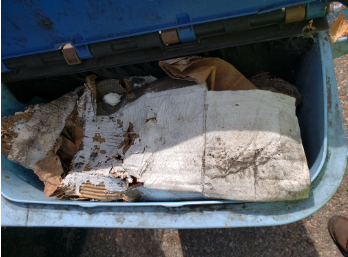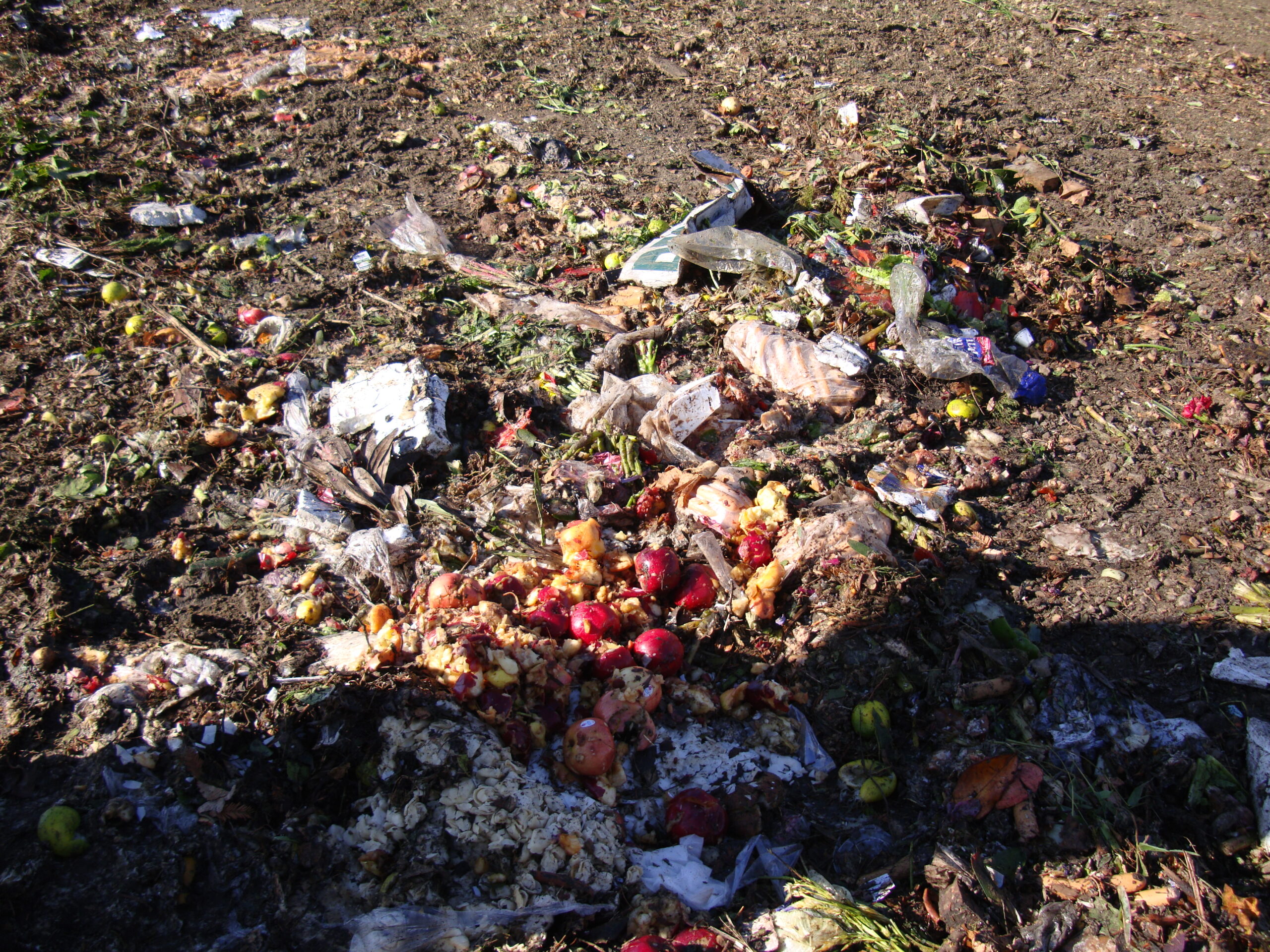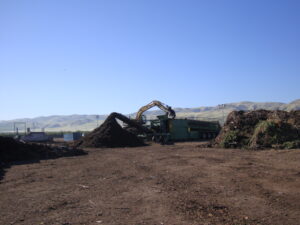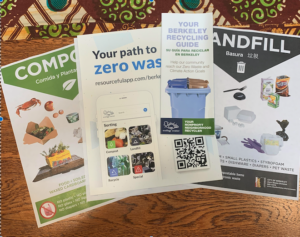A Look at Curbside Compost
Having answered over 350 questions in 2022 so far through our Help Desk, we are well aware of our Berkeley community’s dedication to proper waste sorting. With inquiries ranging from where to drop off an old microwave to how to sort soiled cardboard, your thoughtful questions do make a difference. Diverting your organic waste from the landfill and recycling waste streams is incredibly impactful in mitigating climate change. Organic waste, such as food scraps, yard trimmings, and food-soiled paper and cardboard, make up half of landfill volume in California. In landfills organic waste emits methane, a greenhouse gas significantly more effective at trapping heat than carbon dioxide. Organics in landfills currently account for about 20% of the state’s methane emissions.
To address these unnecessary emissions, California passed SB 1383 in 2016. The law set an ambitious goal of 75% methane reduction from 2014 levels by 2025. SB 1383’s impacts span multiple industries, including hospitality, agriculture, and wholesale food distribution by requiring donations of edible food to food recovery organizations. Beyond businesses and municipalities, SB 1383 also creates new requirements for individuals. So what will SB 1383 mean for you?
The Breakdown on Organics
Organic waste emits methane, a climate super pollutant 84 times more potent than carbon dioxide, when in a landfill. This occurs because landfills provide the perfect conditions for methane-producing bacteria to break down the waste and generate methane in the process.
Luckily, this process can be avoided. When organic waste is properly sorted into your green cart and then processed at a composting facility, the introduction of water and air allow for an aerobic decomposition process. Unlike an anaerobic process, aerobic decomposition creates conditions that drastically reduce methane production. Heat generated in an aerobic decomposition process kills off methane-producing bacteria, as well as pathogens and unwanted seeds, which makes it safe for you to use in your backyard garden. Read more about composting as a closed loop system here.
What does this mean for you?
While Berkeley has had a curbside green waste collection program since the 90s, some cities are just beginning to instate their compost collection services. This is because SB 1383 mandates that residents subscribe to and participate in their jurisdiction’s organic curbside collection service. Along with compost collection services, SB 1383 also requires the utilization of these services with proper green waste sorting. That means that you should continue to put organic waste in your green compost cart and not in your recycling or landfill carts. If you are living in a multifamily unit and are not receiving green waste collection, contact your property manager and StopWaste.
This also means that you may see Ecology Center staff in your neighborhood more often! To maximize climate change mitigation and assess educational needs, our Recycling team will be making periodic site visits to Berkeley neighborhoods to analyze your waste under the requirements of SB 1383.

An example of paper and cardboard that is too water damaged to be recycled; food-soiled or wet paper products can be composted instead!
Tips for Becoming a Sorting Superstar
Make sure that only clean, dry recyclables are put into their respective carts. A good way to know if there is too much left in a container is with the spoon test, especially for those pesky peanut butter jars. To use the spoon test, ask yourself if the remaining substance in a container can fill a spoon. If there is more than a spoonful left the contaminant needs to be scrapped out more, while if it is less than a spoonful, the container is ready to go in your recycling cart. Similarly, make sure beverage containers have no more than a sip left in them.
Here are some commonly missorted organic materials which can actually composted:
Common in recycling stream:
|
Common in landfill stream:
|
More Information
The proper sorting of organic waste into your green cart plays an important role in climate change mitigation. For information about what is accepted in Berkeley’s compost waste streams, visit the City of Berkleley’s website. To learn more about the Ecology Center’s residential curbside recycling program visit our recycling webpage. For waste sorting assistance visit Resourceful, our digital waste sorting guide.







Where do I recycle old scanners, printers, etc? It seems hard to find a place. I’m in zip code 94804.
I’m a member as well. Not sure when membership expires. THANKS
Hi Stacey,
You are able to drop off your scanners, printers, and other electronics at E-Waste Collective free of charge! Thank you for supporting the Ecology Center! Your membership lapse’s 3/1/2024.